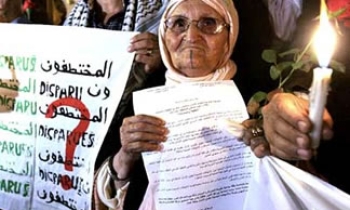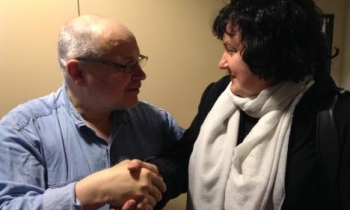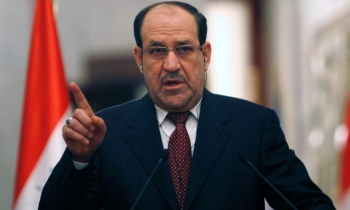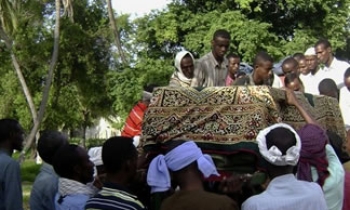The deaths of two CBS crew members in Iraq and the wounding of a veteran correspondent have dealt yet another deadly blow to news organizations determined to cover a conflict increasingly perilous to journalists.
For months, the killings and kidnappings of news professionals in Iraq have prompted a reappraisal of the need for large staffs there. While no major news organizations say they are planning to pull out of Iraq altogether, many smaller media outlets have left for good.
At least 71 journalists have died in Iraq, more than in Vietnam -- a much longer conflict -- or World War II. Dozens have been kidnapped or wounded.
"I covered a war a long time ago, but these people are putting their lives on the line every time they go out in the field," said Bob Schieffer, a Vietnam War reporter and now interim anchor and managing editor of the CBS Evening News. "This war is far more dangerous than Vietnam. I say nothing to downgrade the danger of Vietnam. It was a dangerous place. But these folks in Iraq have no place that they can feel safe."
Schieffer said the Iraq conflict is not just the most dangerous "but the most difficult war of any war American correspondents have ever tried to cover." But as long as American soldiers are in Iraq, "we feel we have a responsibility to cover and report on what they do," he said.
"We're not changing a thing," Schieffer said. "We're going to keep covering this war. We know we have to do that."
Rome Hartman, executive producer of the CBS Evening News, said yesterday that the process of evaluating "how we can best cover the story" in Iraq is never-ending.
"The balance between the imperative to cover this story and the imperative to do everything humanly possible to keep people safe -- which actually are contradictory -- is something we talk about all the time," Hartman said.
Hartman said that, for the moment, he and other CBS News executives are focused on helping the families of cameraman Paul Douglas and soundman James Brolan, who along with a U.S. soldier were killed in a roadside bombing Monday. With them was CBS News correspondent Kimberly Dozier, who was critically wounded. She was flown yesterday to the Landstuhl Regional Medical Center, a U.S. military hospital in Germany. CBS said Dozier, who grew up in the Baltimore area, was resting comfortably after treatment for wounds to her head and legs.
Other news organizations similarly said they needed to keep their personnel safe above all, while still covering the news from a country riven by sectarian violence and attacks on coalition troops. In addition to Douglas and Brolan, at least 31 other people were killed in Iraq on Monday.
"We evaluate our procedures daily," said Nigel Pritchard, a CNN spokesman in Atlanta. "We talk and work with other news organizations concerning safety."
Peter Hart, a media analyst for Fairness and Accuracy in Reporting, said that news outlets need to have reporters on the ground.
"Obviously, doing any sort of reporting in Iraq is extremely dangerous," Hart said. However, the level of danger in Iraq has led more reporters than ever to work under military protection, which, while wise from a security standpoint, "can put serious limitations on what stories reporters will be able to tell about the war," Hart said.
Joel Campagna, Middle East program coordinator for the Committee to Protect Journalists, said the threat to journalists working in Iraq has been growing over the last two years.
"Before 2004, hundreds of journalists in Baghdad were able to move around the country pretty freely," he said. "But then we saw a rise in the attacks on journalists, and a sharp deterioration in the security situation in Iraq affected the work of journalists."
Covering such a conflict, with its daily bombings and attacks by insurgents, is an "inherently risky" endeavor, Campagna said. On the other hand, "the journalists who do it know the risks full well, and are constantly weighing the risk of when they go out, where to go and how to do it," he said, referring specifically to ABC News anchor Bob Woodruff, who was badly hurt in a bombing Jan. 29.
"The vast majority [of reporters] these days are embedded with troops, but as seen with the most recent attacks, and the attack on the convoy carrying Bob Woodruff, embeds with the military are hardly without risk," he said.
In such an environment, which has clearly gotten worse since Woodruff's wounding, reporters and camera crews risk their lives every time they step outside to report a story.
"The news profession has lost nearly 100 people in this devastating war -- 71 journalists and 26 support staffers," said Ann Cooper, executive director of the Committee to Protect Journalists. "Dozens more have been injured or kidnapped in one of the most dangerous conflicts that journalists have ever covered."
Michael Ware, a former Time magazine bureau chief in Iraq who will return in a few weeks as CNN's newly hired correspondent there, said yesterday that he could not count the number of friends and colleagues who had been injured in Iraq.
Ware said the bombings and kidnappings of late -- he mentioned the abduction of Christian Science Monitor correspondent Jill Carroll, who was freed in March -- are "part and parcel" of journalists' lives.
"It's something that you live with," Ware said, speaking from his home in Brisbane, Australia, where he is on leave. "I often think that what we do is harder for those who love us than it is for us."
Andrew Heyward, a former president of CBS News, who resigned in November, said the deaths of the CBS crew members was "a devastating loss."
But Heyward added that as shaken as the media are by the casualties, their determination to continue to cover Iraq remains strong.
"These were seasoned combat veterans. They understood the risks, and were not in any way foolhardy or adventuresome. They were brave and determined to do their jobs properly," he said. "And the problem is in a place like that, no matter how careful you are, you can't inoculate yourself against all risk. ... But they are the ones putting their lives on the line, not the executives in New York."
Sun television critic David Zurawik contributed to this article.









